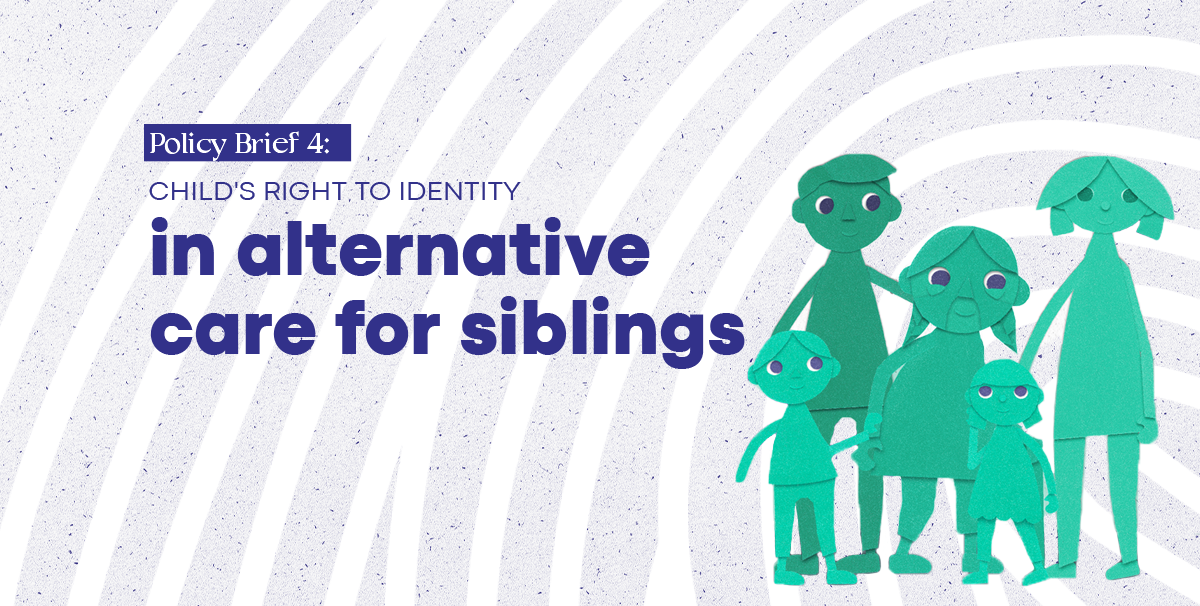
Policy Brief 4: Child’s right to identity in alternative care for siblings
Sibling relationships are the longest relationships a person has in his or her life. They contribute to the individual’s psychological development, are part of his or her identity and are a potential source of mutual support. Although siblings are not specifically mentioned in the Convention on the Rights of the Child, Article 8 states that “States Parties undertake to respect the right of the child to preserve his or her identity, including nationality, name and family relations”, the latter including sibling relationships.
When alternative care is provided, siblings can provide emotional support, make up for feelings of anxiety, guilt and loss of identity, and contribute to the well-being of children. However, there are situations that require siblings to be placed separately and this creates a tension between two rights: the right to family relations, which is part of the right to identity, and the best interests of the child, which requires separation from siblings and individualised care. Each situation is unique, complex and requires a rigorous assessment of the child’s needs and the sibling relationship.






